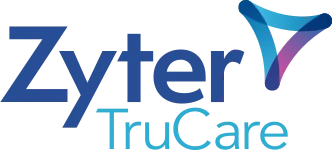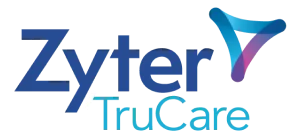The Challenge
A leading healthcare provider on the U.S. West Coast faced a new, critical challenge when the COVID-19 pandemic began to spread in early 2020. Besides preparing for a potential influx of cases, it was imperative for the two hospitals and lab facilities on the provider’s main campus to protect their patient population. Most suffer from cancer, diabetes, and other significant diseases that put them at much higher risk for complications from COVID-19.
Hospital leaders quickly took proactive measures to make their facilities safer for staff, patients and visitors. They met with their physicians, nurses, surgeons, oncologists, research staff and the IT department to come up with a solution to identify individuals with an elevated body temperature, an early symptom of COVID-19.
Hospital leaders began evaluating automated temperature screening solutions to handle the large volume of patients who enter the main hospital daily to check in for outpatient treatments or to be admitted for long-term care. Other main points of entry on the campus are the blood lab and the diagnostic lab.
Manually screening so many visitors and patients would be a slow process, requiring significant resources, potentially leading to delays in treatment and exposing staff. The healthcare provider believed the stand-alone Zyter ThermalAlert imaging system was a far better solution.

The Approach
Zyter ThermalAlert is a smart imaging system that supports continuous, automated, accurate temperature screening from a wide variety of thermal imaging cameras. Depending on the cameras used, the system can measure human body temperature (between 86°F to 113°F) within the temperature detection zone from a distance of up to 6 feet. Stand-alone installation by a Zyter technician takes only 48 hours and includes immediate customer support through a dedicated 24/7 toll-free number and email.
Six cameras running on the Zyter ThermalAlert platform are currently live at the main hospital campus. Two cameras operate 24/7 and cover the front and back entrances at the main hospital. An additional two cameras cover the front and back entrances at the second hospital. One camera monitors the blood lab, and one covers the diagnostic lab. At the latter three locations, security guards set up the cameras during normal business hours at 6 a.m. and shut them down at 10 p.m. Security staff also provide support to the nurses in case any issues arise during the mass temperature screening process.
Nurses manage and monitor a customizable dashboard on the ThermalAlert terminal that displays optical and thermal images, as well as body temperatures. The system alerts the nurses if one or more persons entering the building are identified as having a fever. The nurses then redirect any individual with an elevated temperature reading for additional screening and a COVID-19 exposure assessment. Persons deemed at risk are given a COVID-19 test and are sent home to quarantine for 14 days. They are not allowed back into the hospital campus until they test negative.
Hospital staff and employees are also screened daily using the ThermalAlert system when they arrive for work. In addition to ensuring the utmost vigilance, the system’s contactless temperature screening capabilities have dramatically reduced the likelihood of becoming infected for screeners and security guards. In contrast, administering in person temperature scans using a handheld device is not only slower, but also poses significantly higher risk to staff.
Product Spotlight
- A smart, camera-agnotic imaging system that supports automated, accurate mass temperature screening
- Results in less than one second with accuracy of ≤ ± 0.5°F
- Images can be managed on a single computer, iPad or tablet
- Device-to-device 256-bit AES encryption as standard
- Standalone deployment within 48 hours

The Results
The Zyter ThermalAlert platform stood out from other thermal imaging systems because of its capability to seamlessly integrate with the hospital’s Epic Electronic Health Record (EHR) software and all third-party applications. The flexibility and compatibility with existing systems, plus a rapid 48-hour deployment, satisfied the healthcare provider’s requirements for a quickly implemented and cost-effective solution. Since implementation, ThermalAlert has helped the hospital campus remain free of a COVID-19 outbreak.
The hospital campus has also benefited from the time saved and the reduced number of caregivers and screening stations that would have been required for manual temperature screening. Extra security personnel also would have been needed for crowd management and ensuring social distancing while waiting in line. In addition, it takes at least 30-40 seconds to manually screen an individual, while the Zyter ThermalAlert cameras can accurately scan an individual in less than one second.
Perhaps best of all, ThermalAlert has given the hospital campus and wider community a feeling of safety and trust. Workers feel safer coming to work each day, as do patients and visitors to the campus. Despite the pandemic, the healthcare provider has been able to remain open and continue critical elective surgeries.







